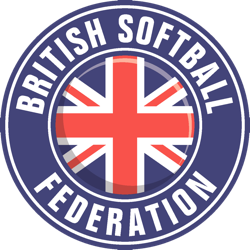Player
CHRIS BAYMAN
Chris started and remained a fixture in the London Ad League, but his talent level was far above that, and he became a key player for many years for the Slammers, a tournament team that grew from the Ad League.
Chris had amazing bat control and could spray hits to all fields, making him almost impossible to get out at times. He also made himself into a more than adequate defensive player at several positions, but his main ability was hitting for high average. Chris also served briefly on the BSF Executive.
Coach
GARY CROCK
An outstanding player for many years after first coming to the UK from America, but with a unique background in slowpitch coaching, Gary led the Genies to the National Championship in 1995 as a player-coach.
But his greatest achievements came when he coached the GB Slowpitch Team to European Championships against the odds in 2002 and 2004, years when the GB Team was probably inferior to the Irish but still managed to beat them on both occasions.
After GB had lost twice -- and heavily -- to Ireland in the 2002 European Championships in Mlade Buky, Gary's masterful analysis of the Irish hitters on the eve of the final, leading to a plan executed brilliantly by GB pitcher (and Gary's successor as Head Coach) Mark Saunders, was the key to the GB triumph.
Administrators
ELISSA BAIRD
Elissa took over as Chair of the London Softball Federation in 1994 at a time when the LSF was still more important and influential than the emerging BSF, and guided the London Federation through four productive and formative years for softball, with a low-key common sense approach that served the sport well in a time of change. Elissa was the recipient of the first-ever Glover Cup award in 1995.
CHRIS JANUARY
Chris was one of the founders of the London Surveyors League, which at one time was the second largest league in London, with close to 50 teams. But perhaps more importantly, the Surveyors League under Chris' direction sowed the seeds for softball to spread from London to the rest of the country by leading expeditionary forces that resulted in Surveyors Leagues starting up in Leeds, Birmingham and elsewhere in the late 1980s and early 1990s.
RUSSELL PORTER
Back in 1986, softball was still a fledgling sport with little organisation outside a few established teams that played 'pick-up' games in London's Hyde Park and Regents Park.
Working for publishers William Collins (now HarperCollins), Russell Porter began his softball'career' by playing for the company team and helping to organise games against other teams. After an enjoyable summer doing that, he became one of the founders of the London-based Publishers Softball League, which played its first League season in 1987.
Over the next two years Russell helped to establish the annual Horace Bent Tournament and in 1989 organised the first international Publishers Softball Game between a Publishers Softball League (PSL) All-Star team and a team of representative USA and Canadian publishers as part of the London Book Fair. That summer, he led the PSL All-Stars as they entered the Greater London Softball Mixed League and was eventually invited to become Director of the GLSML.
During Russell's two years as Director (1988-90), the GLSML doubled in size, started a monthly newsletter, ran more tournaments and started a Weekend League.
Russell was an accomplished pitcher and continued playing for a number of teams in the PSL, the GLSML, the Weekend League and the Men's League. But it was during his first tournament abroad, in Belgium, that he realised that club softball was the future of the game in the UK and in 1990 he focused his efforts into creating one of the very first softball clubs in the country, the Capital Softball Club.
For two years, under Russell's chairmanship, the Capital Softball Club made a considerable impact as it focused on playing at various invitational games and small tournaments around the country. The club established itself at Rickmansworth, where it staged the first two-day tournament held in the UK, which also attracted teams from a number of US air bases. The club took a team to Edinburgh to play at the first Festiball, played developing teams at Newcastle, entered the first tournaments held in Bristol and Bordon and in 1991 took 20 players to New York for a week's tour which involved games in Central Park and a tournament on Long Island.
The club also held the UK's first Indoor tournament during the off-season in 1991.
Through his league activity and the Capital Softball Club, Russell Porter's impact on the early development of softball in the UK was wide-ranging.
Development Workers
RICHARD ANDREWS
Richard was a PE teacher in Kent who loved baseball and softball and set up a very early softball development programme in the secondary school where he taught, as well as running an annual tournament involving a number of schools in the area. That development programme produced a unique group of dedicated and talented players, many of whom are still involved at the highest levels of the game today, including Dan Spinks, Liz Keaveney, Kim Akehurst and Michael Lee, and led to the founding of the Pioneers as well as a softball league in Kent that no longer survives.
ALLAN MOLE
Men's fastpitch has always been a Cinderella sport in this country, but the fact that there was a Men's Fastpitch League throughout most of the 1990s, and a Meteors Men's Fastpitch Team that has always done well in Europe, was due in large part to Allan's dedicated work.
He was an early organiser for both the Meteors Softball Club and the Men's Fastpitch League as well as a player, and was determined to keep the format alive. The more recent success of the GB Men's Team in qualifying for World Championships and achieving a ranking of eighth in the world (in 2009) has been built at least in part on Allan's efforts.
